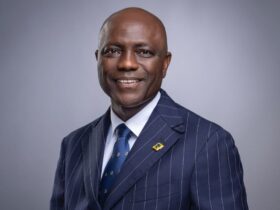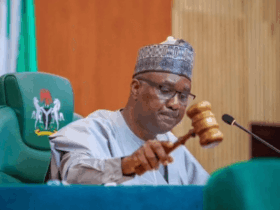Unlocking Africa’s Mineral Wealth: How Technology and Innovation Hold the Key – Fatunbi

Advocacy for Establishing a National Agency for Mineral Development
Tolulope Fatunbi, a specialist in mineral exploration from Nigeria, emphasizes that the fusion of advanced technology and transparent management is crucial for converting Africa’s mineral riches into enduring economic benefits.
As the CEO of Dorogis Limited, Fatunbi envisions a pivotal moment for Africa, where embracing innovation can drive both industrial progress and environmental sustainability by enhancing the value derived from its vast mineral deposits.
“This moment transcends opportunity,” he shared with BusinessDay, “it represents a vital responsibility to redefine Africa’s economic future while addressing a pressing global challenge.”
He points out that Africa is endowed with some of the planet’s most critical minerals-such as lithium, cobalt, nickel, and rare earth elements-that are essential for sectors like electric mobility, clean energy, defense systems, and digital infrastructure.
Known for his expertise in mineral technology solutions, Fatunbi explains that his firm leverages artificial intelligence, drone technology, and economic modeling to accurately identify and evaluate mineral deposits.
“Our approach combines AI and machine learning to simulate mineral formations, drones to gather airborne geophysical data, and satellite imagery to forecast new resource locations,” he detailed.
He stresses the necessity for Africa to adopt cutting-edge technologies to fully realize the potential of its mineral wealth.
Fatunbi advocates for the establishment of a National Critical Minerals Development Agency (NCMDA) tasked with overseeing digital geological mapping, strategic data acquisition, and integrating the mining value chain within Nigeria.
“Without aligning Nigeria’s geological assets with Fourth Industrial Revolution technologies, these resources risk remaining mere scientific facts rather than drivers of economic growth,” he warned.
Additionally, he recommends setting up specialized processing hubs for Rare Earth Elements (REE) and High Purity Quartz (HPQ) in states including Bauchi, Nasarawa, Ogun, Kwara, Cross River, Plateau, and Kogi.
“China’s supremacy in this sector is not due to having the largest mineral reserves but because of its superior refining capabilities,” Fatunbi observed.
He argues that fostering local mineral processing, integrating renewable energy solutions, and ensuring accountable governance can transform mining into a foundation for industrial development and rural upliftment.
“When a mine supports and energizes its surrounding community, it gains social acceptance and contributes tangible national value,” he noted.
To promote sustainable development, Fatunbi urges the Nigerian government to implement a Strategic Minerals Export Control Policy aimed at curbing raw mineral exports and boosting domestic refining industries.
“Exporting unprocessed minerals undermines our competitive edge,” he stated. “Policy incentives must actively encourage local value addition rather than leaving it to market forces alone.”
He also highlights the critical role of nurturing skilled professionals and engaging the diaspora through collaborations with international institutions like the University of Toronto’s Lassonde Institute.
“Mineral resources and technology are ineffective without knowledgeable individuals to analyze and apply them,” he emphasized.
Fatunbi insists that Africa’s mineral transformation should be grounded in principles of transparency, sustainability, and innovation, positioning the continent as a leader in ethical mining and responsible resource management.
“Our ultimate mission,” he concluded, “is to convert geological potential into lasting prosperity for generations to come.”








Leave a Reply